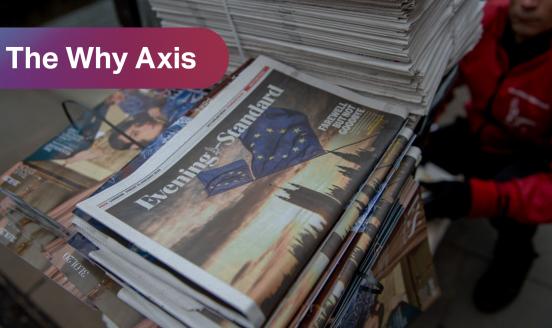The IFRS' Stress Test
The financial crisis is the first real test for international financial reporting standards (IFRS). In view of recent developments, Nicolas Véron is not certain it will pass it. Europe is likely to be among the losers of a scenario in which IFRS would fragment into regional accounting rules.
The International Accounting Standards Board (IASB), which decides the content of international financial reporting standards (IFRS), had its eighth birthday in April this year (though its roots can be traced back to 1973). Few companies used IFRS before their 2005 application throughout the European Union.
The financial crisis is thus the first real test for this arguably unique experiment in global economic policymaking. And what a test it is.
Accounting standards are now on the agenda at the highest level. They are cited by some as being a cause of the crisis.
The number-one suspect is ‘fair value’, the accounting method based on observable transaction prices or, if none is available, evaluation models. The IFRS make liberal use of fair value, as do the US GAAP standards applicable in America; similar controversies rage on both sides of the Atlantic.
As early as March 2008, Martin Sullivan, then CEO of insurance giant AIG, had called for the ‘suspension’ of fair value. This call is echoed by much of the US banking industry and by many European financiers, especially in France – even though the available facts-based studies, such as the report published by the US SEC in December, fail to support their case.
In October 2008, the European Union forced the IASB to revise its asset classification rules with retroactive effect, in order to permit banks to book fewer assets at fair value.
In the event the IASB broke its consultation principles, and its chairman David Tweedie almost resigned at the moment of biting the bullet. Mary Schapiro, the new president of the SEC, later cited this lack of freedom from political interference as a reason for the US to delay IFRS adoption.
In 2003-04, when faced with similar pressure over IAS standard 39 on financial instruments, Sir David and his colleagues had refused to budge. In yielding this time, the IASB has taken the risk of compromising its credibility.
That accounting standards are a political issue is no news. In 1993-94 the US Congress arm-twisted the FASB, which issues US GAAP, into watering down a much-needed standard on stock options.
Today Congress, at the behest of the banking sector, is pushing to dampen the impact of fair value.
In April, FASB agreed to tinker at the margin, but this is far from being as big an about-face as the IASB did six months earlier, either in substantive or procedural terms.
In the US, the SEC plays a key role as guarantor of FASB. The IASB has no such official public cover and stands alone in the storm, tossed by the contradictory demands of its many stakeholders.
The IASB suffers chiefly from the weaknesses of its institutional set-up. During the crucial years of EU adoption, it benefited from the dynamic duo of David Tweedie and Paul Volcker, then chairman of the Trustees and a highly respected personality in the financial community.
But Volcker left in 2006. At age 81, he now advises Barack Obama on economic policy. His current replacement, Gerrit Zalm, spends limited time on IFRS matters.
After years of denial, the 22 Trustees have realised that the rudimentary governance framework installed in 2001 is in need of reform. But the Monitoring Board, a small group of public authorities (including the SEC and the European Commission) to whom they conferred the power over Trustee appointments in January, is an ill thought-out device and a recipe for dysfunction.
The European Commission, which had championed the IASB in 2002 but is now rather clumsily attempting to control it, has not yet signed the Monitoring Board’s founding documents, even as Internal Market Commissioner McCreevy participated in the opening session in April. The sense of confusion is palpable.
Meanwhile, the IASB is taking initiatives.
The Financial Crisis Advisory Group it set up at the end of 2008 is doing useful work in bringing about a shared analysis of the crisis. The choice to comprehensively revise IAS 39 in coordination with FASB, rather than making piecemeal amendments, is a sensible one. Also, two recognised members of the user community have just been appointed to the IASB. This represents genuine progress.
But this may be too little, too late. Gerrit Zalm is perceived as conflicted since he became head of ABN Amro, the nationalised Dutch bank. The other Trustees are mostly absent from public debate. David Tweedie, whose term expires in 2011, has made many enemies, and he can no longer exert the same leadership as before.
The IFRS are not yet doomed to failure, which would mean global fragmentation and divergence of accounting standards used in Europe, the US, and Asian countries. But this risk is becoming increasingly real.
If this were to happen, Europe is most likely to find itself at a disadvantage compared with the US, as it was in the 1990s, as most investors would consider US GAAP to be more demanding. Actually, everyone would lose out.
Nicolas Véron is a research fellow at Bruegel. Andrew Fielding’s help in translating from the French is gratefully acknowledged.
This comment was originally published in French in La Tribune.



